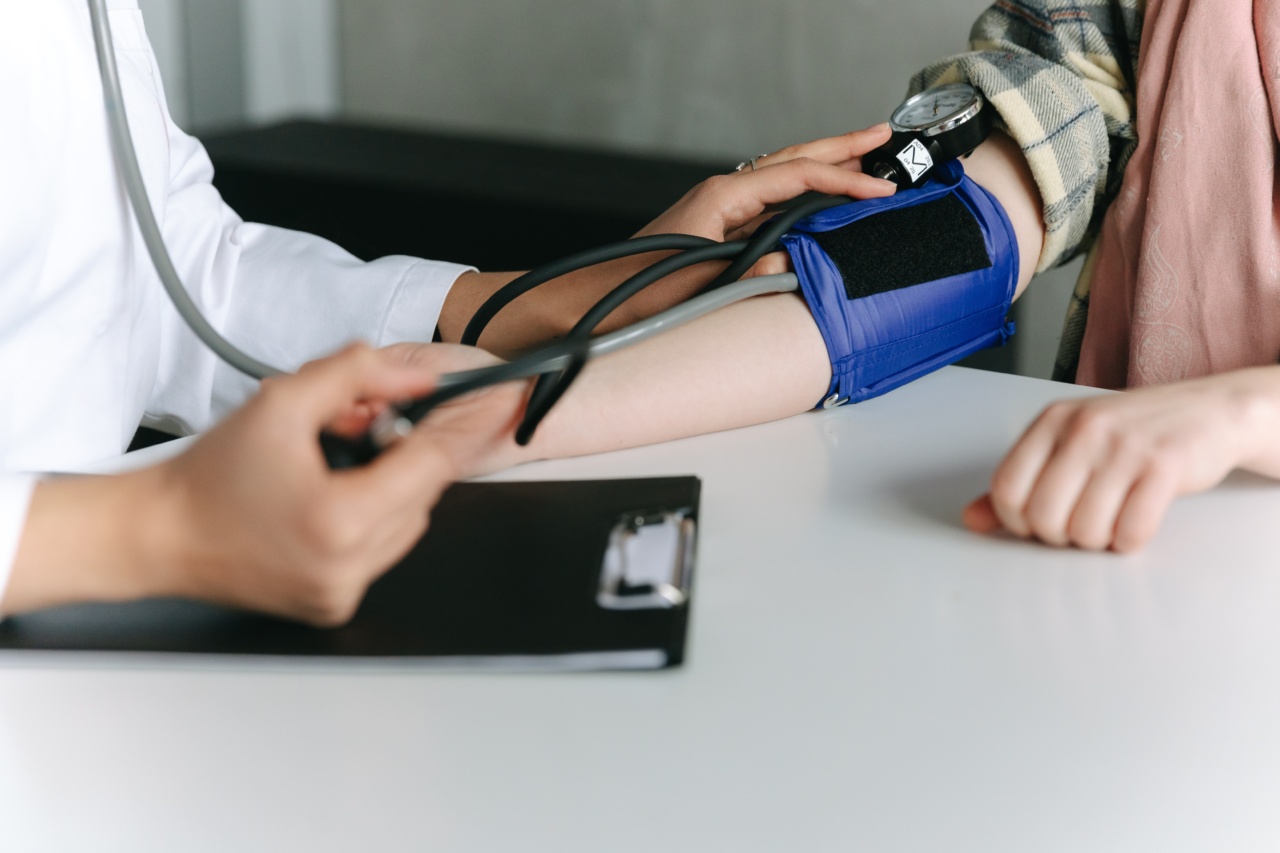Hypertension, commonly known as high blood pressure, affects millions of people worldwide and is a leading cause of cardiovascular diseases.
It is a chronic condition characterized by elevated blood pressure levels that can lead to serious health complications if left uncontrolled. While prescription medications are commonly used to manage hypertension, there are several drug-free techniques that can effectively help lower blood pressure and improve overall cardiovascular health.
In this article, we will explore seven drug-free techniques that can assist in managing hypertension.
Lifestyle modifications
Lifestyle modifications play a crucial role in the management of hypertension. Making healthy lifestyle choices can significantly lower blood pressure levels, and these changes are often recommended as the first-line treatment for hypertension.
Key lifestyle modifications include:.
Exercise
Regular physical activity is essential for maintaining a healthy blood pressure level.
Engaging in aerobic exercises such as brisk walking, jogging, swimming, or cycling for at least 30 minutes most days of the week can help lower blood pressure and improve cardiovascular health. Additionally, strength training exercises, such as weightlifting or using resistance bands, can also be beneficial.
Always consult with a healthcare professional before starting a new exercise routine, especially if you have any underlying health conditions.
Stress management
Chronic stress can contribute to hypertension, so it’s important to develop effective stress management techniques.
Stress-reduction techniques such as deep breathing exercises, meditation, yoga, and mindfulness can help lower blood pressure and promote relaxation. Finding activities that help you relax and unwind, such as listening to soothing music or engaging in hobbies, can also be beneficial in managing stress levels.
Dietary changes
A healthy diet can have a significant impact on blood pressure control.
Following the Dietary Approaches to Stop Hypertension (DASH) eating plan, which emphasizes fruits, vegetables, whole grains, lean proteins, and low-fat dairy products, can help lower blood pressure. Limiting sodium (salt) intake is also crucial, as excessive sodium consumption can contribute to hypertension. Additionally, reducing alcohol and caffeine consumption can assist in managing blood pressure levels.
Weight management
Maintaining a healthy weight is vital for managing hypertension. Excess body weight puts additional strain on the heart and blood vessels, increasing the risk of elevated blood pressure.
Losing even a small amount of weight can make a significant difference in blood pressure control. Adopting healthy eating habits, portion control, and regular physical activity are key components of successful weight management.
Limiting alcohol intake and quitting smoking
Excessive alcohol consumption and smoking are both major risk factors for hypertension.
Limiting alcohol intake to moderate levels (up to one drink per day for women and two drinks per day for men) and quitting smoking altogether are essential for managing blood pressure. Smoking damages blood vessels and raises blood pressure, while excessive alcohol intake can significantly increase blood pressure levels.
Alternative therapies
In addition to lifestyle modifications, some individuals may find alternative therapies helpful in managing hypertension. Acupuncture, for example, has been shown to have a positive impact on blood pressure control.
Other alternative therapies such as biofeedback, aromatherapy, and relaxation techniques may also assist in reducing blood pressure and promoting overall well-being. Consult with a healthcare professional or alternative medicine practitioner to determine the best approach for your specific needs.
Regular monitoring and doctor visits
Regular blood pressure monitoring is vital in managing hypertension.
Keeping track of your blood pressure levels at home using a reliable blood pressure monitor can help you and your doctor monitor your progress and make necessary adjustments to your treatment plan. It is also crucial to follow up with your healthcare provider regularly to ensure proper management of your hypertension and evaluate the effectiveness of your chosen techniques.
Conclusion
Managing hypertension effectively is crucial in preventing complications and improving overall cardiovascular health. While prescription medications are commonly used, adopting drug-free techniques is also highly recommended.
Incorporating lifestyle modifications, including regular exercise, stress management, dietary changes, weight management, and limiting alcohol intake and smoking, can significantly lower blood pressure levels. Additionally, alternative therapies and regular monitoring under the guidance of a healthcare professional can offer further support.
By embracing these drug-free techniques, individuals can take control of their hypertension and enjoy better heart health.






























